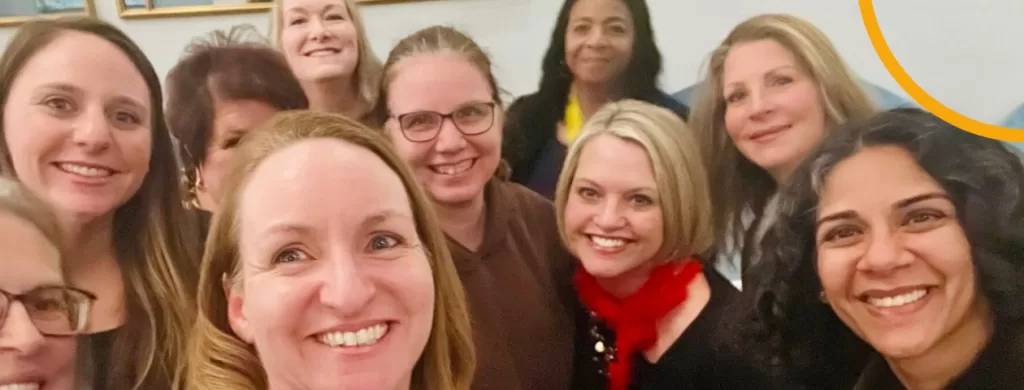
While Generation Z has grown up with technology at their fingertips and a demand on universities to digitalise their offer, Generation Alpha – those born between 2010 and 2024 – are fully immersed into a world of automation, algorithms and AI.
As the higher education sector prepares to welcome Gen Alpha in the coming years, the world’s leading education innovators explore what learning needs to look like for the future.
Harnessing a curious generation
At the QS Reimagine Education Conference 2023, hosted by Khalifa University in Abu Dhabi, leaders engaged in a panel exploring innovative educational approaches to empower Gen Alpha.
Speaking on the panel, Monica Ares, executive director of the IDEA Lab at Imperial College Business School, said: “The future we’re heading into is one that merges the digital and physical worlds, and Gen Alpha does that seamlessly. They’re already engaging with AI in games and finding their friends in digital spaces.
“They’ve also figured out something that we’ve bred out of education, which is the curiosity factor.” One aspect of social platforms like TikTok is engagement in “bitesize moments that release endorphins which this generation like to learn from.”
“They are showing us cool ways of learning something new and we need to bring that into formal education. It’s about making sure we’re connecting them to that curiosity as they move out of elementary school age,” Monica added.
Developing foundational skills before embracing AI
There is no doubt that generative AI will play a key role in the lives of Gen Alpha. Anant Agarwal, founder of edX, also spoke on the panel and said: “Throughout work, everyone is using AI. A ChatGPT window has become as used as a Google window.”
Agrawal feels that AI needs to be embedded in the curriculum, but in a thoughtful way. “It reminds me of the days when calculators became available, and we had to navigate that transition. I recommend no AI until students have learned the basic, foundational skills needed and then they can use AI to accelerate and expand on what they can do.
“We’re in real danger as educators in either not taking advantage of AI or of taking too much advantage of AI that we lose the whole new generation. It’s about blended learning; in-person and online education; teaching critical foundational skills and harnessing AI for innovation.”
Building soft skills to create meaningful use of technology
Audrey Giacomini, director of partner programmes for Minerva Project, poses a valuable question on whether students and faculty “really know what generative AI is or how to use it meaningfully.”
She said: “We need to cultivate humanity from this generation, and we can use AI for that and teach durable soft skills like social emotional learning, creative thinking and critical assessment, leveraging both worlds to cultivate those skills.
“We’re already seeing a deficit of these skills in the workplace and employers are also defining them very differently across industries and regions.”
For Agrawal, it’s the soft skills like empathy, negotiation, storytelling and communication are “essentially the human skills that make us what we are.” He said: “I’m really drawn to how these skills will become even more important in the age of AI.”
Is the four-year degree fit for Gen Alpha?
A popular topic across the QS Reimagine Education Conference was whether the current format of higher education provision should be a given moving forward.
Sarah Toms is Chief Learning Officer at IMD. Adding to the conversation, Toms said: “There is a reason that there is value in formal higher education, but is the four-year degree still what we need or is it an arbitrary amount of time that doesn’t have meaning anymore?
“Studying a degree is an investment of time and an investment of focus. It’s recognition that this person is at a point where they need to gain independence in intellectual growth. These are very human aspects that I don’t think will go away. There is still value in coming to an institution for an educational journey, but is it for a four-year degree or is this about lifelong growth?”
We can’t reimagine, alone
However the higher education sector sets out its plans for shaping a future fit for Gen Alpha, it’s clear that collaboration and partnerships play an important role.
Daniel Landau, director of media, research and technology at INSEAD, also spoke on the panel and said: “[At INSEAD], we’re trying to build a solution that is curriculum-wide, open for partnerships and inclusive, and we cannot do it alone. We have to understand the ecosystem and the marketplace.”
Toms added: “I believe in partnerships. While this is something that higher education can certainly bring a lot to the table on, it has to be done in collaboration and we have to work with organisations and earlier forms of education too.”
For Ares, the world is currently at the top of the “hype cycle of AI” and it’s only once the hype dies down that real solutions can be designed. “It’s important that the hype happens and conversations begin to take place, so we can then start to build from it.”



